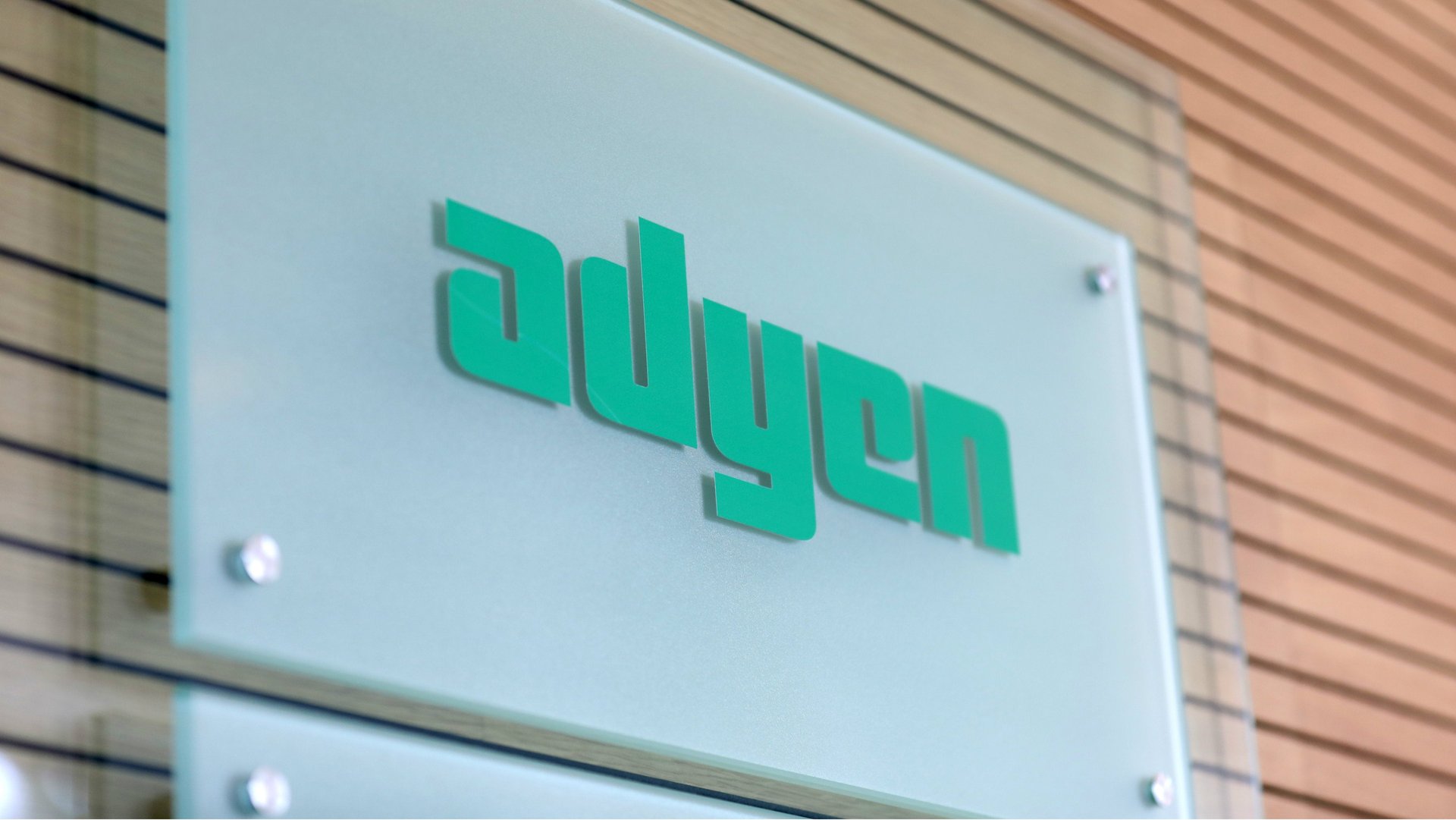Amsterdam’s fintech darling catches up to Silicon Valley’s Stripe in market value
The market capitalization for Adyen, the payment company based in Amsterdam, has surged almost 50% this year to around $22 billion. That’s about that same as the latest valuation for Silicon Valley-based Stripe, another darling of the fintech scene.


The market capitalization for Adyen, the payment company based in Amsterdam, has surged almost 50% this year to around $22 billion. That’s about that same as the latest valuation for Silicon Valley-based Stripe, another darling of the fintech scene.
Adyen’s stock price has risen along with revenue, which jumped 54% in the second half of 2018 to €192.5 million ($219 million), according to a statement today (Feb. 27). The payment processor for Gap and Spotify said it handled €89 billion in transactions during that period, a 50% increase.
Investors are betting heavily on payment companies as more transactions take place digitally. Adyen, which says it specializes in sorting out tangled digital payment channels (international payments, for example) has scooped up customers like H&M, Facebook, and Ebay, the early proving ground for PayPal.
The Dutch company’s shares have come back to earth somewhat after rocketing more than 200% in the months following its June IPO. But they’re still up 170% from Adyen’s listing price. Stripe’s valuation has also soared, climbing to $22.5 billion (paywall) in January after it raised an extra $100 million from Tiger Global Management. That’s up from $20.25 billion in September, according to PitchBook data. Adyen was started in 2006, and Stripe came along four years later.
The jockeying between Adyen and Stripe in market valuations is a bright spot for European entrepreneurship. While the region lacks a tech giant of Alibaba- or Google-size proportions, a number of highly ambitious fintech founders think they can give Silicon Valley a run for its money. That said, Europe still has some catching up to do in areas like venture capital investment.
In its earlier days, Stripe was seen as a payment system that focused on startups and developers, but its client list now includes the likes of Uber and Google. Is Adyen seeing greater competition from the Silicon Valley upstart? Not really, says Adyen CEO Pieter van der Does. “We don’t lose customers to anyone,” the co-founder said today in a conference call. “The loyalty to our platform is very high.”
In a separate interview, the CEO said banks, however, are losing market share to Adyen and its payment technology. While some legacy providers are a complex mashup of systems brought together via acquisitions, Adyen markets itself as a single platform that’s designed to operate smoothly across many geographies and jurisdictions. He said small- and medium-size companies look to Adyen when their businesses get bigger and more complex.
A key question for the fast-growing companies is whether they’ll be able to meet sky-high investor expectations. Van der Does said, diplomatically, that the daily stock price isn’t a key data point for the company: “We are focused on the longer term,” he said.
This story has been corrected in the fourth paragraph to show the correct amount of funding raised by Stripe.